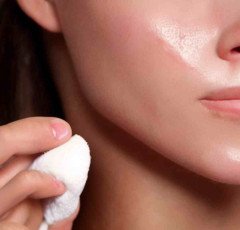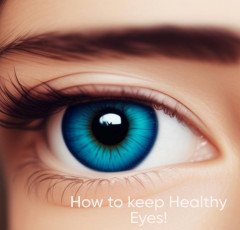
How to keep your skin beautiful year round

Everyone desires to have pores and skin that is supple, radiant, and wholesome. It now not best enhances our appearance but additionally instills lots wished self assurance. It is a sign that your frame is in correct health because issues inside the body first and foremost take place themselves on the skin.
Most ladies undertake their everyday workouts if you want to have fabulous pores and skin. We have all executed this, from using creams, moisturizers, and facial masks to ingesting wholesome meals that improve the appearance of our pores and skin. But as the saying goes, the whole lot right comes slowly and leaves speedy.
Even if you finally reap the lovely pores and skin you have constantly preferred, a little carelessness ingesting highly spiced or dangerous food, skipping sleep, and so forth can easily break it with a small pimple. Seasonal and climatic changes can also have an detrimental effect on the pores and skin.
Your skin's fitness is prompted by means of loads of variables. It is not possible to always keep control over the whole thing. But it is simpler to preserve glowing pores and skin all of the time without using any type of make-up if you recognize pores and skin fitness and the way it responds to situations.
Although no longer easy, it's far absolutely possible. Let's first look at the factors which have an impact on skin fitness. Second, we will delve into techniques for keeping control over these issues.
What elements have an impact to your pores and skin?
Understanding the elements that affect skin fitness is crucial to casting off the constant possibility of growing skin issues and dropping your smooth and exquisite skin.
Now, earlier than we maintain directly to the reasons of skin problems, it's far critical to realise that everyone has a one of a kind type of skin, and that some people have greater troubles with their pores and skin than others due to genetics. Scientific studies has shown that some things, though, have an impact on absolutely everyone.
What then are the reasons of the numerous pores and skin conditions that once in a while affect humans?
This is your reaction : -
One of the main causes of pores and skin disorders, strain, is some thing that many humans do now not even recognize. Your adrenal glands have a tendency to create extra cortisol, regularly called the strain hormone, whilst you enjoy extended durations of strain and mental pressure.
The sebaceous gland's activity is eventually accelerated through this hormone, which results in improved oil and sebum manufacturing. It may also reason zits or extra touchy skin as a right away end result. Additionally, cortisol significantly impairs the skin's immune device, which leads to oxidative stress and wrinkles and features on the pores and skin.
You may be conscious that your face displays whatever takes place in your stomach. The secret to having radiant pores and skin is having a wholesome intestine. The majority of us become consuming poorly inside the present, which eventually results in having dull skin in the future. Your gut health significantly relies upon at the ingredients you select to devour.
For healthy skin, it is crucial to devour a wholesome, balanced eating regimen that consists of all the vitamins and minerals. However, the majority of humans consume unhealthy fat and carbohydrates at the side of processed, fried, and subtle meals in their diets. It ultimately outcomes in modest physical inflammation and progresses to extra critical problems like acne.
Another sizeable factor that impacts your pores and skin's health is the environment or the time of year. The temperature wherein you currently live has extra of an effect to your skin than many people recognize, inflicting the whole lot from dry pores and skin to an itchy patch to even an uncontrollable pimples rampage.
Dry skin with none moisture can result from colder places with low humidity, but summer time heat also can reason rashes or more breakouts because of perspiration. In warmer climates, excessive sun and heat exposure also can hasten the onset of wrinkles and features.
The surroundings, specially pollutants, performs a widespread role in how wholesome your pores and skin is. Regular publicity to air pollutants can motive allergic irritation, elevated skin getting older, and other issues including eczema, zits, or maybe psoriasis.
Everybody has a unique pores and skin type, so what suits one man or woman might not healthy every other. Understanding your pores and skin kind is important, and also you must best use pores and skin-friendly merchandise because a few might honestly damage your pores and skin more than help. And handiest practice pores and skin care products with a view to benefit it and be greater useful than harmful.
Humans regularly push aside their skin sorts and follow famous way of life, shopping the maximum well appreciated merchandise with out even looking on the labels. Some of the ingredients might also cause hypersensitive reactions in a few people, especially if they have touchy pores and skin. This has the capacity to be pretty detrimental and worsen existing issues.
Sleeping nicely is vital for retaining healthful pores and skin. The word beauty sleep must be widely recognized to many of you. It is not always just casually stated, it has actual significance. This is so that your frame has a danger to repair and rebuild your pores and skin after a restful night time's sleep.
Lack of sleep, however, shortens the important time the body requires for skin regeneration, which in flip reasons infection and other issues. Long-term results of insufficient sleep can be extraordinarily destructive to skin's normal look.
Now that we are aware of a number of the critical factors that without delay have an effect on our pores and skin, we are able to return to studying the way to fight them and maintain wholesome skin in the course of the year, regardless of what. So, that is how to go approximately it.
Maintaining healthful skin and preserving it glowing calls for a couple of movement. You ought to take movement simply every day to do it. You must be both centered and careful at the identical time. You ought to be targeted on taking the perfect actions, as we are able to percentage below, because it's far vital to realise that each action has an equivalent response.
Start eating a balanced diet to preserve desirable skin. Include inexperienced leafy greens and sparkling culmination on your food plan as they may be right sources of minerals, vitamins, and proteins. Pay special attention to including meals excessive in nutrition C to your food plan, which includes oranges, candy potatoes, strawberries, and tomatoes, as this encourages glowing pores and skin.
A low sugar diet should additionally be taken into consideration as it may useful resource in decreasing insulin degrees, permitting the pores and skin cells to hold a balanced state. Additionally, keep away from fried, fermented, processed, spicy, and refined foods. To keep away from the danger of skin harm, something on this class have to be avoided as tons as viable.
Your pores and skin's health is one of the many top notch benefits of workout for the frame. Regular exercising improves blood stream and increases oxygenation of the frame. This without delay complements and expedites the frame's herbal cleansing procedure by eliminating toxins and impurities from the pores and skin.
Due in your tense schedules, you must nevertheless carve out as a minimum 15 to 20 mins to go for a fast walk or jog for you to sweat off the pollution and help the pores and skin expel them. Before going outside and tasty in your preferred exercise, maintain in thoughts now not to apply something to the skin.
Try to scrub your face as soon as you may after finishing to remove the sweat and pollutants. Apply a moisturizer later to keep the skin soft.
Every day, you have to try to get at least eight hours of sleep, preferably . The aim is to give the skin some rest, as doing so should motive it to sag and seem big and puffy, as many of you can have already experienced.
Before going to mattress, you ought to continually wash your face to remove any pollutants that might have gotten in throughout the day, and then moisturize. Additionally, if you cannot get enough sleep, you must interact in.
You need to also strive to keep your mind relaxed and decrease tension. You might also control your strain and decorate your mental fitness via undertaking activities like meditation, spending first class time with your family, watching humorous tv, etc. This now not only encourages higher sleep but additionally lowers the manufacturing of the pores and skin damaging pressure hormone cortisol. Both will bring about an improvement inside the fitness of your pores and skin.
It is now broadly accepted that a hydrated frame contributes to radiant skin. You have to always hold your self hydrated. At least eight glasses of water have to be ate up daily.
Even attempting drinking alkaline water in region of normal water is an choice. Alkaline water enables the body stay hydrated for a extended time frame and is extra quickly absorbed through your cells. Additionally, it allows to detoxify the skin and keep intestine health, both of which make contributions to retaining the fitness of the skin.
Try the DYLN Bottle, which promises alkaline water to you whenever and wherever you need it. Additionally, you should take the time to devour culmination and vegetables which can be high in water content. Foods like watermelon, cucumber, strawberries, oranges, and grapefruit improve your skin and assist you stay hydrated.
The surroundings and the weather have a substantial impact for your pores and skin. Although we presently have not any control over the weather, we can take actions to reduce the way it affects us. In an attempt to preserve our pores and skin wholesome and safe, we can adjust to the instances round us.
Try to use sunscreen before you go outdoor if you stay in a warm or warm location, and wash your face frequently to dispose of all of the sweat. Make positive to moisturize your pores and skin often when you are in a less warm climate to prevent drying out.
To reduce the effects of pollution at the skin, use skin care products like toners and face masks. However, be cautious when deciding on products for your skin and search for ingredients which are suitable in your skin kind. If you have sensitive pores and skin, take more precautions and try to stay out of the sun and locations with loads of pollutants.
At the end
A human has 20 rectangular toes of pores and skin on average, making it the most important organ in the frame. The popular excellent of life may be negatively impacted via pores and skin issues, which can be extremely traumatic to cope with. It is not unusual for humans with skin troubles to enjoy a lack of self assurance and shallowness, which emphasizes the significance of pores and skin health and care.
Everyone wants to have pores and skin this is wonderful, healthy, and vivid, but due to a number of variables, it's far difficult to get and even more difficult to preserve. However, you may keep naturally lovable and glowing skin for longer durations of time in case you are aware of the elements that affect your skin's fitness and then strive to attend to your pores and skin via following the recommendation given above.























































































 Hot Bags For Pain Relief
Hot Bags For Pain Relief  NordLocker
NordLocker  Smart Doorbell
Smart Doorbell  RPM 3.0
RPM 3.0  Acer Laptop
Acer Laptop  The Secret Email System
The Secret Email System  Online Technology Classes
Online Technology Classes  ELECTRONIC ACCESSORIES
ELECTRONIC ACCESSORIES  Unlimited access to classes on illustration, photography, design, film, music
Unlimited access to classes on illustration, photography, design, film, music  ASUS Laptop
ASUS Laptop  Best Selling Books
Best Selling Books  Sennheiser
Sennheiser  Creative Brief For Video Shoot
Creative Brief For Video Shoot  1150+Trendy kids coloring pages Bundle
1150+Trendy kids coloring pages Bundle  Women Fashion
Women Fashion  NordVPN
NordVPN  Favorite Company (Cuelinks)
Favorite Company (Cuelinks)  One World Collection
One World Collection  Artificial Intelligence
Artificial Intelligence  Best Robotic Vacuum Cleaners
Best Robotic Vacuum Cleaners  All Wireless Products
All Wireless Products  Amazon Best Selling Products
Amazon Best Selling Products  Hello Theme
Hello Theme  Men Clothing
Men Clothing  SEO Checklist
SEO Checklist  ASPINAL LONDON
ASPINAL LONDON  Graphics & Design
Graphics & Design  TitTok Revolution
TitTok Revolution  SOFAS
SOFAS  Online Marketing
Online Marketing  Best Home Appliances
Best Home Appliances  The Click Engine
The Click Engine  Top Rated From Amazon
Top Rated From Amazon  BEST SELLER TOP10
BEST SELLER TOP10  Best Sellers On Amazon
Best Sellers On Amazon  Only For The United States
Only For The United States  NordPass
NordPass  Unreal Engine 5 For Beginners Learn The Basics Of Virtual Production
Unreal Engine 5 For Beginners Learn The Basics Of Virtual Production 
















